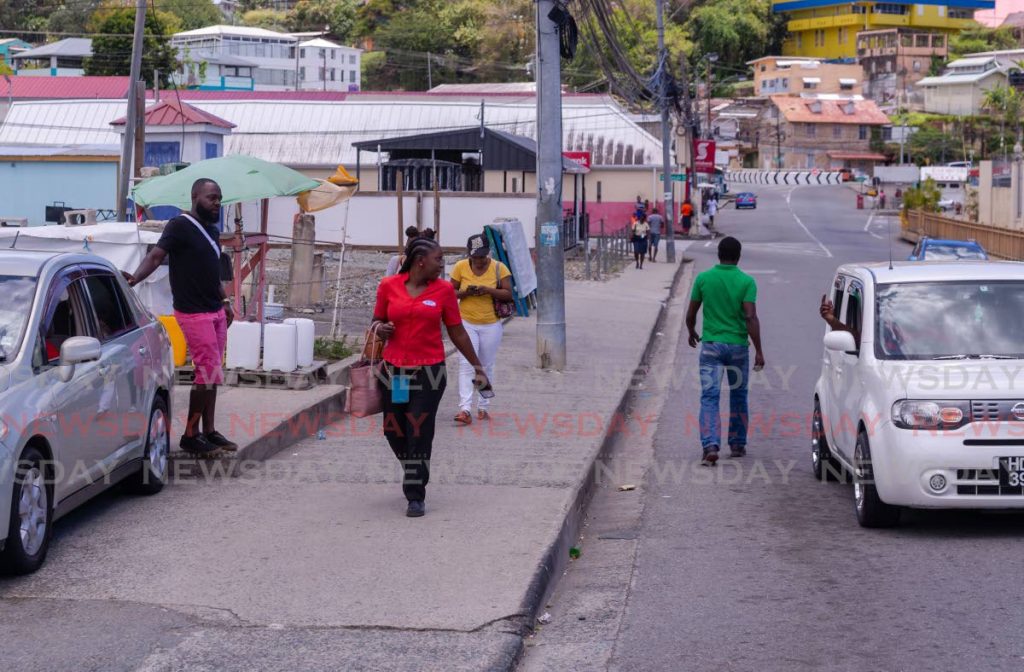Tobago kick-starts PH taxi revolution

WHILE Police Commissioner Gary Griffith and Attorney General Faris Al-Rawi are making overtures to regularise PH taxis, 60 men in Tobago have had a working model for three months.
Newsday spoke with one of the drivers in the yet-to-be official association, Marlon Smart, who said the drivers got tired of being harassed by police and licensing officials “and decided to come together.”
The issue of PH taxis has been raised repeatedly for well over a decade, usually after women passengers suffer violence at the hands of drivers and other men.
On November 29, Ashanti Riley, 19, took a PH taxi in San Juan to take her to the Croisee in San Juan. She was on her way to Cocorite to visit her grandmother. Her decomposing body was found on December 4. A 32-year-old PH driver, Luciano Quash, is charged with her murder.
There were outrage and calls for regularisation of PH taxis, again, then they stopped.
The conversation restarted when 22-year-old Andrea Bharatt was kidnapped on January 29 and her decomposing body found on Thursday. Bharatt got into what she thought was a taxi at King Street, Arima. The car had false “H” licence plates.
At a media conference last Thursday, Griffith said his officers will be creating a database of PH drivers. He said officers will be visiting taxi stands and using the stop-and-search to collate information.
“With that database we can draw reference and see which drivers have criminal records so we can keep monitoring people of interest."
After Riley’s killing, the Prime Minister instructed the Attorney General and Works and Transport Minister Rohan Sinanan to come up with a system to control the illegal industry.
Dr Rowley said then: “I think we need a system of authority and control to be able to exclude undesirable elements. We need a system that permits, identifies and approves who can ply a vehicle for hire. Some system that is enforceable.”
Smart and his fellow PH drivers, along with a few taxis, found a way. They found a car park in Crown Point to use as their stand. Drivers wanting to join their “association” are made to pay $30 a day to park there to collect passengers, and a small fee to cover the cost of their T-shirts and stickers granting them access to the car park.
Drivers must have the sticker displayed. Their documents are copied and kept on file with a corresponding number to the sticker they display. They are made to wear t-shirts with a telephone contact on it for an office at the car park.
“Drivers got tired of being harassed all the time. This way people can hustle peacefully. We spoke with each other as drivers and together we went to the car park.”
Smart said their move is a “sample” of what can happen and there are plans to make the somewhat informal association more formal.
“We are looking for a stand right now. We have been around for about three months now and we plan to have elections and have a president and these things in the future,” Smart said, adding that he does not want to be part of the executive.
He said: “Some people want to do their own thing and they are getting tickets. When we are in the car park, passengers come to us and the drivers are orderly. They wait their turn in line. If someone gets a hired job then they skip the line, but other than that everyone is co-operating.”
Asked about the the illegality of PH taxis and the concern about their being regularised, Smart said PH taxis are a benefit to Tobago. He said since they have been using the car park as their unofficial stand, the members have not been ticketed by police and licensing officers. Things, he said, are “100 per cent smoother.”
In Trinidad, Makesi Peters, special adviser to Al-Rawi ,told Newsday that the plan to regularise PH taxis will be through technology. He said the task he is focused on is reshaping the entire transportation industry, not just regularising PH taxis.
He said it will be multifaceted and will need the involvement of public and private partners. The "Mobility as a Service" platform, which he proposed, will provide three key service options to patrons: tracking the location of public transport, which will assess estimated time of arrival and availability; accessing schedules of public transport, including the water taxi, and buying tickets virtually.
Peters said the issue is not making the illegal taxis legal, but retrofitting transport in TT,with technology. He added that the existing ride share companies will have to play a key role in this.

Comments
"Tobago kick-starts PH taxi revolution"